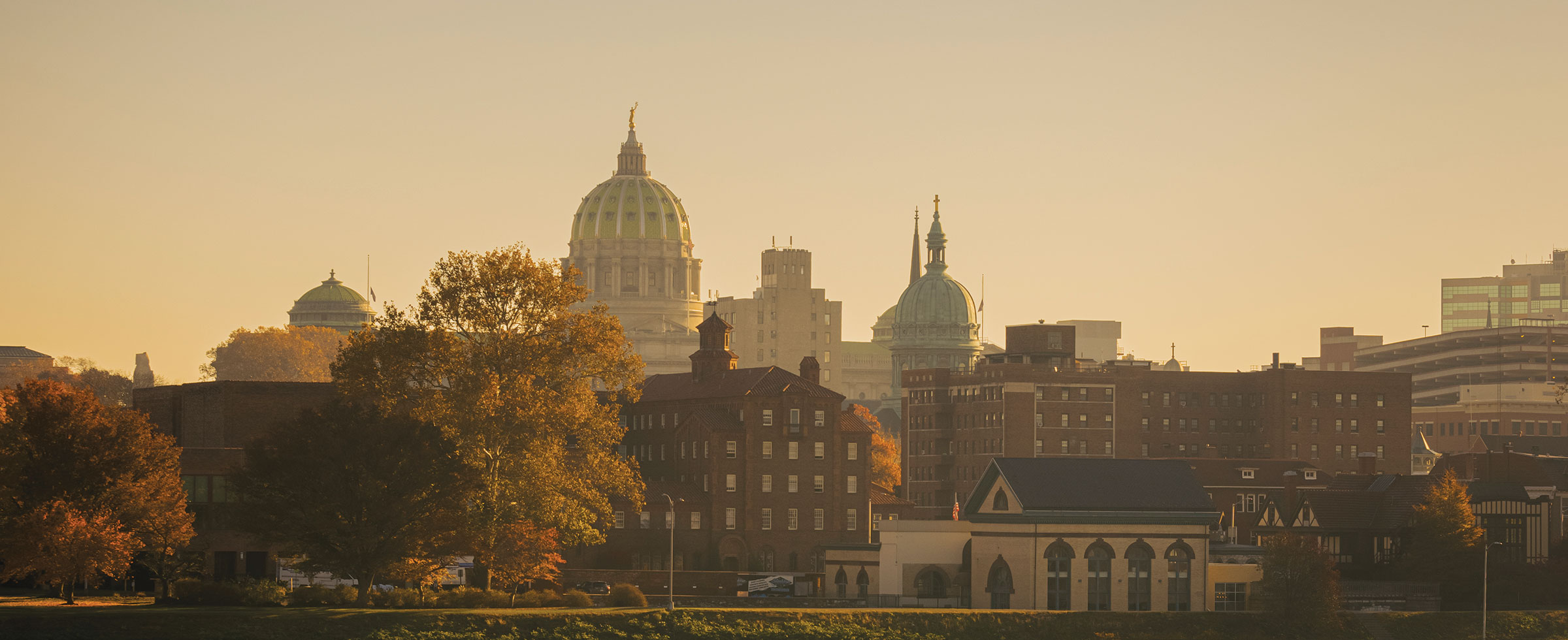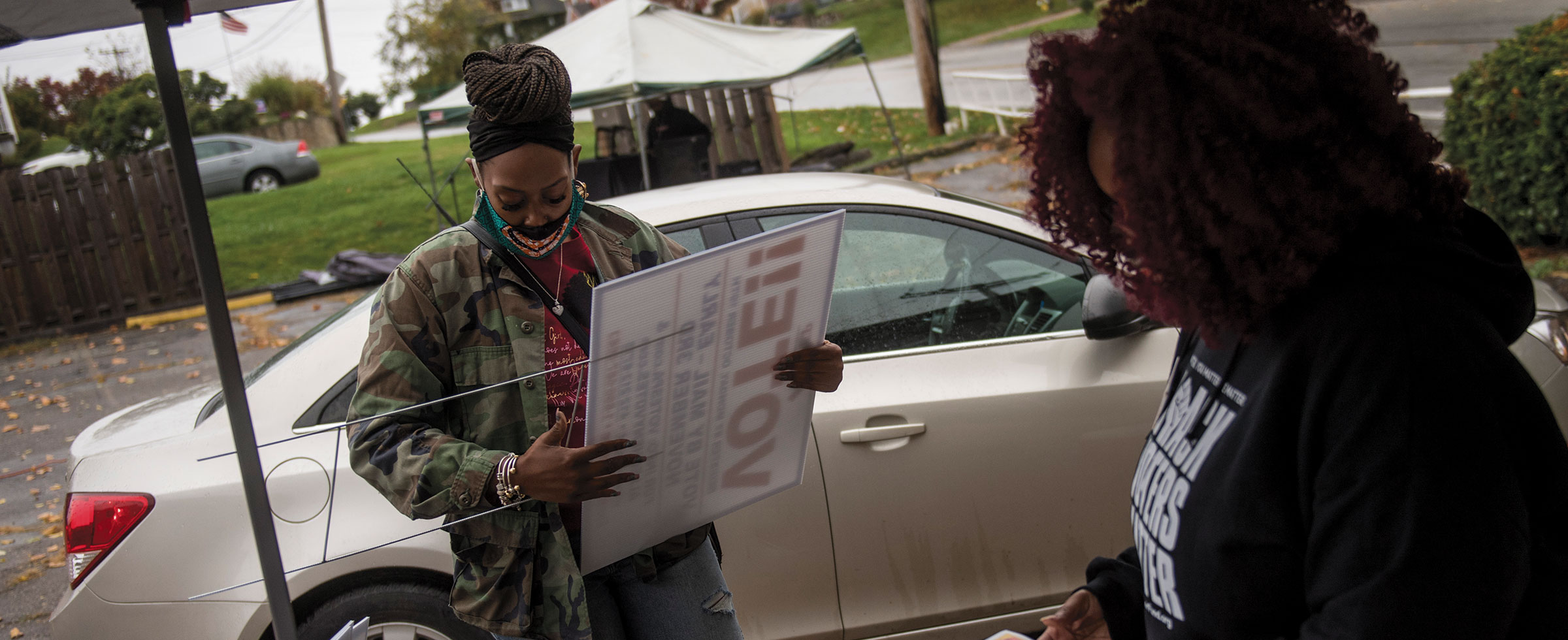Pulling the Levers of Government Funding

At the end of March, a small group from the staff and Board of The Pittsburgh Foundation was poring over applications for grants from the Emergency Action Fund, which had been created just two weeks earlier, as Allegheny County was officially locked down to prevent the spread of deadly COVID-19.
The pressure was on. Millions of dollars already had been committed to the Fund, a public donation drive was underway, and nonprofit staffs were overwhelmed as they tried to reduce hardship to those who had lost jobs and provide essential services, particularly food.
“We were expecting the hundreds of applications that came in; it was an unprecedented situation and that’s why we established the Fund so quickly,” says Pittsburgh Foundation President and CEO Lisa Schroeder, who was on the application review team. “What shocked us was the degree of need. Applicant after applicant was telling a story of desperation. We quickly realized that the human services safety net was being strained to the breaking point.”
Ultimately, the Foundation raised nearly $10 million for the Fund and began making grants within weeks. By May, 313 shell-shocked nonprofits had received funding — the fastest processing from application to approval in staff memory. The grants — most ranging from $5,000 to $25,000 — were never intended to cover nonprofits’ total financial shortfalls. Indeed, the entire annual grantmaking of all foundations in the region wouldn’t be enough to bring human services deliverers to full financial recovery.
The only entity with the resources to fill the gaping financial holes, Schroeder realized, is the federal government, which was in the process of releasing $2 trillion from the Coronavirus Aid, Relief, and Economy Security (CARES) Act, much of it to state governments for dispersal. Schroeder moved to use powers unique to community foundations — advocacy and direct lobbying — to steer a significant chunk of Pennsylvania’s share of CARES Act funding to nonprofits delivering essential human services.
Pittsburgh Foundation staff and key partners recruited other organizations from across the state that fund and partner with human services nonprofits to form a 30-member coalition. Those allies include other community foundations, United Way agencies and statewide membership networks such as the Pennsylvania Association of Nonprofit Organizations.
“We joined to allay a worse calamity,” says Bobbi Watt Geer, president and CEO of the United Way of Southwestern Pennsylvania. “Staff and volunteers at nonprofits delivering essential human services have been on the front lines of this pandemic operating in high-risk situations because of the nature of the work. If that sector collapses, our current economic crisis will escalate exponentially.”
This type of campaign, including developing statewide participation, proposing legislation and lobbying directly for its passage, is a first for the Foundation. Much of that work has been aided by an experienced and well-connected government relations group at law firm Buchanan Ingersoll & Rooney, which The Pittsburgh Foundation has retained along with support from three other large foundations in the region.
“ We joined to allay a worse calamity. Staff and volunteers at nonprofits delivering essential human services have been on the front lines of this pandemic, operating in high-risk situations because of the nature of the work. If that sector collapses, our current economic crisis will escalate exponentially.”
--Bobbi Watt Geer
President and CEO, United Way of Southwestern Pennsylvania
Of the $3.9 billion in CARES funding provided to Pennsylvania, $2.6 billion was spent in the first two months of the shutdown. “The fact that Pennsylvania did not spend all of the money immediately gave us time to draw elected officials’ attention to the needs of this critical network of human services providers,” says Wasi Mohamed, the Foundation’s senior policy officer, who was hired in May as part of a ramp-up of the internal advocacy capacity.
Prior to this statewide effort, much of The Pittsburgh Foundation’s advocacy efforts in 2019 and this year focused on its Social Justice Fund, established in 2018 to improve the ability of community members to challenge systems that perpetuate racial and economic inequities. Also in prior years, the Foundation has worked to protect vulnerable residents in state government budget negotiations; testified in support of legislation to eliminate driver’s license suspensions as a sanction for non-driving offenses, and fought practices that weaken citizen power in civic democracy.

In this crisis year, coalition members realized that effective advocacy to help human services nonprofits recover from a global pandemic required direct lobbying of government officials.
The legislation that the coalition supported called for $200 million of the CARES allotment to fund the NEEDS (Nonprofit Economic Emergency Delivery System) Grants Program. While that is the largest amount ever proposed to support recovery of the 8,500 human services organizations across the state, it is a fraction of the total need. (See Assessing the Damage)
The legislation, which received bipartisan sponsorship and unanimous support by the Senate Appropriations Committee, provided for a competitive grants process for community-based organizations doing critical human services work — including child care, community public health, protection from domestic violence, food provision, career training and help for people to manage various disabilities.
Democratic Party leaders in both houses of the Legislature included human services in their CARES Fund spending plan. But, ultimately, late in November, the Legislature allocated the CARES money to the state’s operating budget.
One mark of success for the coalition, however, is that legislators are now more aware of the five alarm level of crisis hitting nonprofits that are meeting essential needs.
Republican State Sen. Judy Ward, who represents the Blair County region and was a main sponsor of the legislation, says the coalition has made a significant contribution going directly to elected officials to make the case for human services nonprofits.
“Eighty percent of nonprofit revenue comes from government contracts and fees for service,” she wrote in a memo urging her colleagues to support the bill.
“Donors, foundations and government all depend on these organizations to meet the basic needs of the most vulnerable Pennsylvanians.”
Schroeder believes the Foundation’s increased presence in the halls of government will position it to have more influence on a range of policy issues.
As for any future COVID-response funding, she and staff are taking lessons from the experience of other community philanthropies such as the New Hampshire Charitable Foundation’s partnership with the state’s governor in distributing $60 million of CARES funding. “We’re laying the groundwork for much more direct involvement with elected
officials and policymakers on supporting basic human services,” Schroeder says. “And we’re in this for as long as it takes.”
Original story appeared in the 2019-20 Annual Report.




